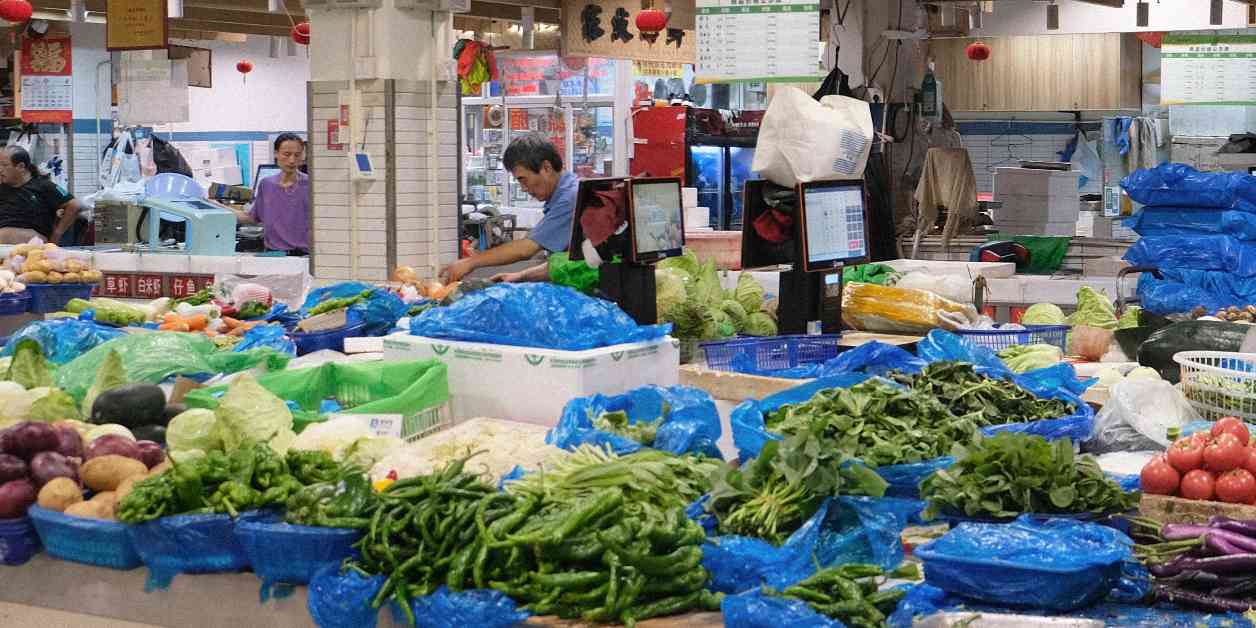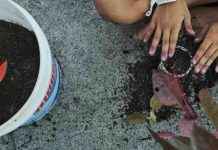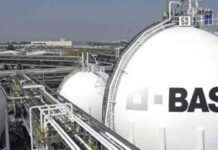Shanghai Leads the Way in Modernizing Traditional Wet Markets
Shanghai, known for its bustling wet markets that have been a staple of community life for decades, is undergoing a transformation to infuse artificial intelligence (AI) technology into these traditional spaces. The city of 25 million people is embracing a back-to-the-future approach to revitalize wet markets for the 2020s, aiming to not only improve hygiene and food safety but also to attract a younger generation of customers who have gravitated towards online grocery platforms.
Revamping Luban Road Wet Market
One of the most prominent examples of Shanghai’s initiative to modernize wet markets can be seen at the Luban Road market. Renovations at this bustling marketplace have introduced a range of technological advancements and improvements to enhance the overall shopping experience for customers. Upon entering the market, visitors are now greeted by a vast LED screen showcasing the day’s fresh produce and prices, setting the stage for a more modern and efficient shopping experience.
The Luban Road market has been divided into three distinct zones, with vegetables on the left, meat on the right, and seafood at the back. In addition to the traditional stalls selling fresh produce, new stores offering popular local dishes have been introduced around the perimeter of the market. The installation of air conditioning ensures a more comfortable shopping environment, even during the sweltering heat of summer.
Embracing AI Technology
One of the most notable upgrades at the Luban Road market is the integration of artificial intelligence-powered smart scales at each stall. These innovative devices eliminate the need for customers to haggle over prices with vendors, as the machines can identify, weigh, and price items automatically. Vendors have praised the efficiency and increased weight capacity of these smart scales, highlighting the positive impact they have had on their operations.
The introduction of AI technology not only streamlines the shopping process for customers but also represents a significant step towards modernizing traditional wet markets. By embracing innovation and incorporating tech-savvy solutions, Shanghai is setting a new standard for the future of these community-centric marketplaces.
Renovation Campaign Across Shanghai
The renovation efforts at the Luban Road market are just one part of a larger campaign to upgrade wet markets across Shanghai. So far, 60 markets have undergone renovations this year, with plans to complete work on another 20 by the end of 2024. These initiatives aim to not only enhance the overall shopping experience for customers but also to ensure the long-term viability and competitiveness of traditional wet markets in the face of growing online grocery platforms.
While the improvements have been well-received by many, there have been challenges as well. Some vendors at markets like Madang Road and West Mengzi Road have reported a decrease in foot traffic since the renovations, with some customers opting to shop elsewhere during the renovation period and never returning. The segregation of markets by produce type has also posed challenges for vendors, as it has led to a decrease in incidental foot traffic that used to occur through cross-sectional browsing.
Looking Towards the Future
Despite these challenges, the renovations are a necessary step in helping wet markets remain competitive in the long run. The rise of online grocery platforms offering convenience and competitive prices has put pressure on traditional wet markets to adapt and innovate. By introducing technological advancements, improving hygiene standards, and enhancing the overall shopping experience, Shanghai is paving the way for the future of wet markets in the digital age.
Shanghai’s initiative to infuse AI into traditional wet markets represents a forward-thinking approach to preserving these cultural institutions while adapting to the demands of modern consumers. With a focus on efficiency, convenience, and hygiene, the city is setting a new standard for traditional markets that blends the best of the past with the innovations of the future. As Shanghai continues to lead the way in modernizing wet markets, it serves as a model for other cities looking to revitalize their traditional marketplaces for the 21st century.

















